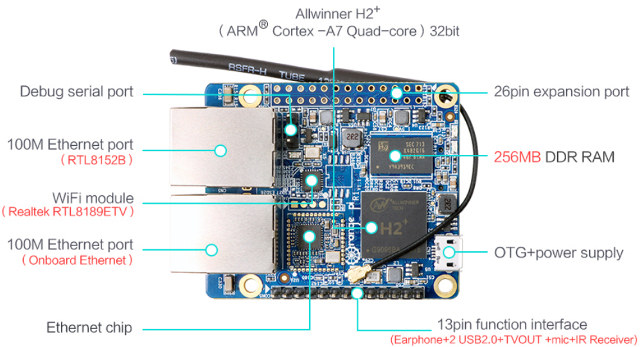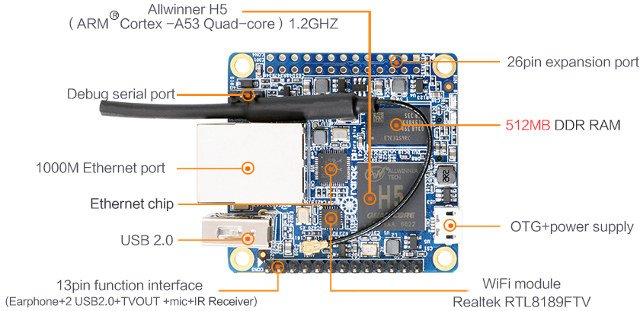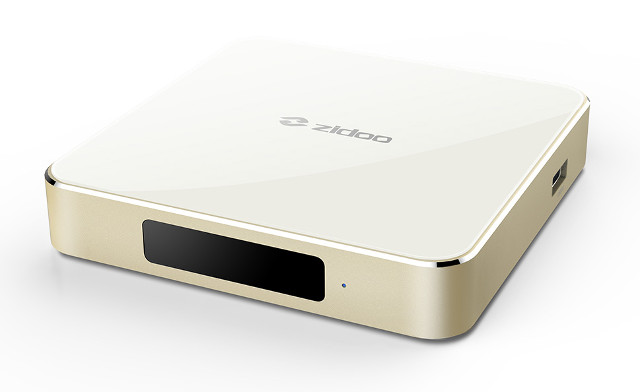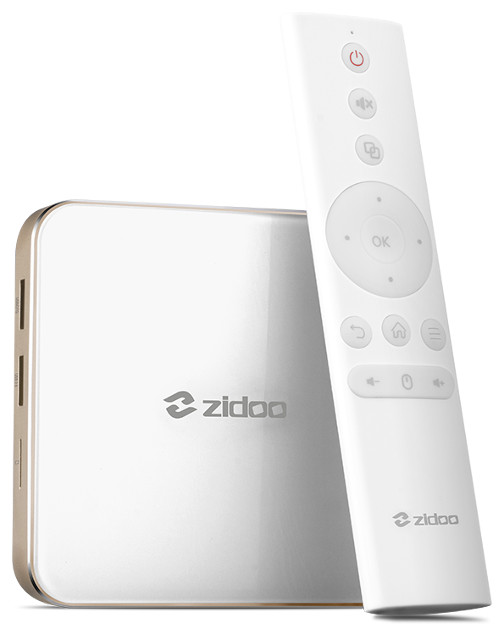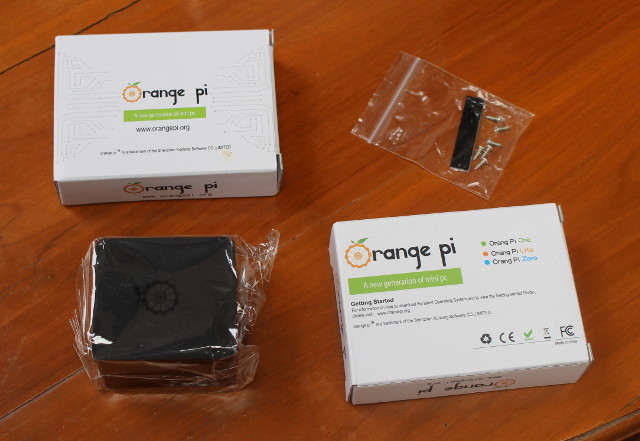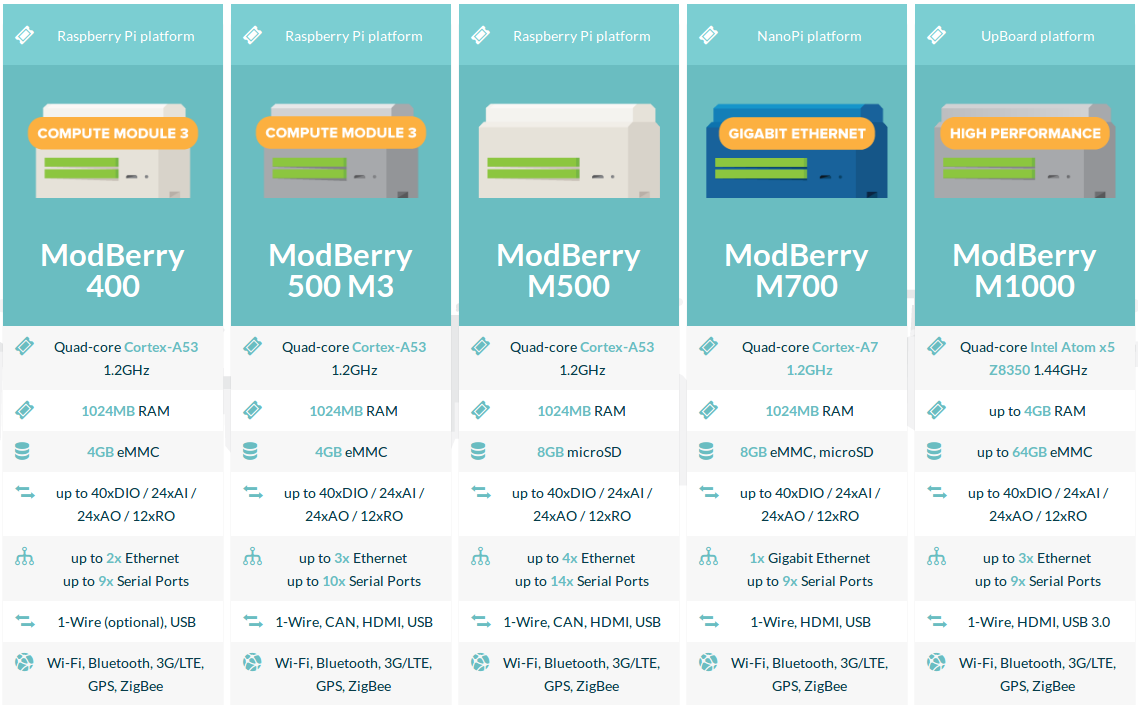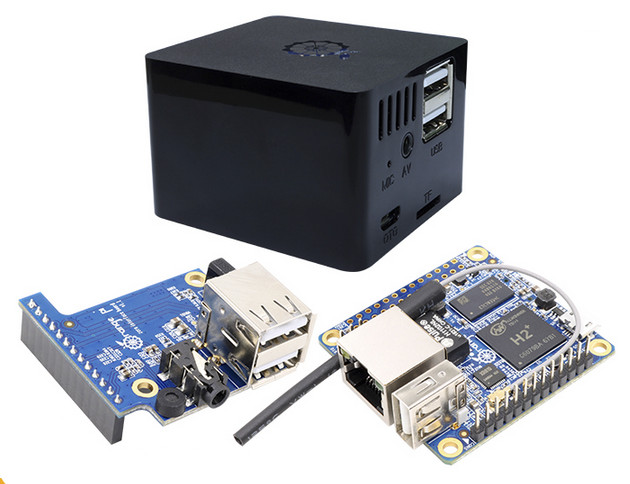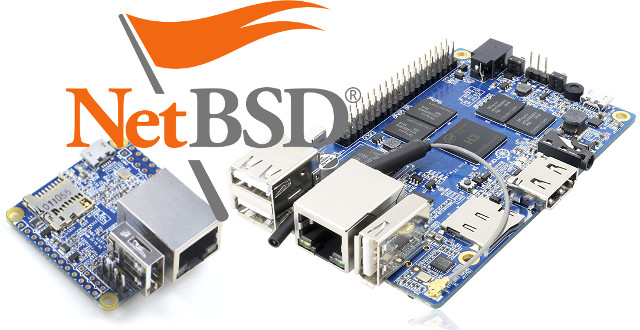Shenzhen Xunlong has introduced the new Orange Pi R1 board with Allwinner H2+ quad core Cortex A7 processor that’s a bit different from their other models, as it includes two 10/100M Ethernet port, and should be suitable for intelligent controllers, or simple IoT gateways. Orange Pi R1 board specifications: SoC – Allwinner H2(+) quad core Cortex A7 processor @ 1.2 GHz with Mali-400MP2 GPU System Memory – 256 DDR RAM Storage – micro SD card slot, 16 MB SPI flash Connectivity – 2x 10/100M Ethernet (including on via RTL8152B USB to Ethernet) + 802.11 b/g/n WiFi (Realtek RTL8189ETV) with u.FL antenna connector and external antenna USB – 1x micro USB OTG port Expansion headers Unpopulated 26-pin “Raspberry Pi B+” header 13-pin header with headphone, 2x USB 2.0, TV out, microphone and IR receiver signals Debugging – 3-pin header for serial console Power Supply – 5V via micro USB port Dimensions […]
$15 Orange Pi Zero Plus Board Released with Allwinner H5 SoC, Gigabit Ethernet, WiFi, and SPI flash
We had Orange Pi Zero, followed by Orange Pi Zero Plus 2, then Orange Pi Zero Plus 2 H5, but now there’s another “Zero” model that’s called Orange Pi Zero Plus, which like Orange Pi Zero Plus 2 H5 board is based on Allwinner H5 processor, but adds a faster Gigabit Ethernet port, and offers a fairly different features set compared to the first Orange Pi H5 board, albeit in the same form factor. Orange Pi Zero Plus specifications with highlights in bold and stricken-through showing difference with Orange Pi Plus 2 H5 model: SoC – Allwinner H5 quad core Cortex A53 processor with hexa core Mali-450MP4 GPU System Memory – 512 MB DDR3 Storage – 8GB eMMC flash, micro SD card slot + 2MB SPI flash Video Output – HDMI ; AV port via 13-pin header Connectivity – Gigabit Ethernet, 802.11 b/g/n WiFi (Realtek RTL8189FTV) with u.FL antenna connector […]
Zidoo H6 Pro 4K HDR TV Box with Allwinner H6 SoC Launched for $99
When I first wrote about Zidoo H6 Pro TV box powered by Amlogic H6 “6K” media processor last week, I expected the launch to take place in several weeks or months, as no other company listed their Allwinner H6 TV box(es) on Alibaba. So today, I was surprised to find out GearBest and GeekBuying are both taking pre-orders for $99, with shipping expected around August 11 – 15 according to the page on GearBest, and in around 3 days according to GeekBuying. The specifications have not changed since last week…: SoC – AllWinner H6 quad-core ARM Cortex-A53 processor up to 1.8GHz with Mali-T720MP2 GPU System Memory – 2GB DDR4 Storage – 16GB eMMC flash, micro SD card reader up to 32 GB Video Output – 1x HDMI 2.0a up to 4K @ 60hz with HDR support, AV port (composite) Video Playback Support H.265/HEVC Main/Main10 profile @ level 5.2 high-tier up to […]
Zidoo H6 PRO Android TV Box is Powered by Allwinner H6 Processor
Earlier this year, Allwinner H6 was introduced as a 4K set-top box SoC with a quad core Cortex A53 processor, a Mali-T720MP GPU, support for “6K” video decoding, and several high speeds interfaces like USB 3.0 and PCIe. Zidoo just unveiled H6 PRO TV box based on the processor. Zidoo H6 PRO TV box specifications: SoC – AllWinner H6 quad-core ARM Cortex-A53 processor up to 1.8GHz with Mali-T720MP2 GPU System Memory – 2GB DDR4 Storage – 16GB eMMC flash, micro SD card reader up to 32 GB Video Output – 1x HDMI 2.0a up to 4K @ 60hz with HDR support, AV port (composite) Video Playback Support H.265/HEVC Main/Main10 profile @ level 5.2 high-tier up to 4K @ 60fps / 6K @ 30 fps VP9 Profile 0/2, up to 4K @ 30fps H264/AVC BP/MP/HP @ level5.1, MVC, up to 4Kx2K @ 30fps MKV, MP4, Blu-ray ISO, 3D MVC… SmartColor 3.0 image […]
How to Setup an Orange Pi Zero DIY Smart Speaker with Google Assistant SDK
A preview release of Google Assistant SDK working with Raspberry Pi 3 and other ARMv7 boards was released in May, and soon after, AIY Projects Voice Kit was offered for free with Raspberry Pi Magazine in order to a complete smart speaker kit working with RPi 3. I wanted to try it on one of FriendlyELEC or Shenzhen Xunlong Allwinner board, since all we need is audio input and output, and an Internet connection. Earlier this month, I came across Orange Pi Zero Set 6 Kit that had all I needed: Orange Pi Zero ARM Linux board, an expansion board with built-in microphone and audio output jack, and a cute and small case to neatly put everything together. Orange Pi Zero Set 6 Kit Unboxing and Assembly Shenzhen Xunlong sent me the kit so that I can try it out. The package includes two Orange Pi packages, the plastic case, […]
ModBerry Industrial Automation Controllers Leverage Raspberry Pi, FriendlyELEC, and AAEON Boards and Modules
TECHBASE’s ModBerry Linux based industrial controllers have been around since 2014 with their first model being ModBerry 500 powered by a Raspberry Pi compute module. Over the years, the company has kept adding new ModBerry controllers with now an interesting choice of Raspberry Pi 3 board or compute module, FriendlyELEC’s NanoPi M1 Plus board, or Intel Atom x5 based AAEON’s UP board. All programmable automation controllers (PAC) runs Linux 4.0 or greater, with Debian or Ubuntu Core rootfs including ready tools and pre-compiled packs including C/C++, JAVA, SQL, PHP, SSH, and VPN support. The firmware is upgradeable over the air, and the controllers can run the company’s iMod control software and interface with iModCloud cloud computing service for telemetry, remote control and data sharing. Typical uses include C-L-V functions with conversion to collect and transmit data over communication interfaces, logging via iModCloud or a SCADA, and visualization via a web […]
$13 Orange Pi Zero Set 6 Kit Could Make an Inexpensive DIY Google Home Alternative
Since Google released the Google Assistant SDK for Raspberry Pi 3, and other ARMv7 boards, I thought I should it try myself on one of the tiny headless boards I have, as you just need audio output and a microphone. I first planed to use NanoPi NEO board with NanoHAT PCM5102A audio board, a cheap USB microphone, and pair of speakers, but this morning, I’ve come across Orange Pi Zero Set 6 kit that looks perfect for this applications and sells for just $12.95 plus shipping ($18.27 in total for me) with Orange Pi Zero board, Orange Pi Zero interface board, and a case. Orange Pi Zero board is powered by Allwinner H2+ quad core Cortex A7 processor with 512MB RAM, and can run the required Ubuntu/Debian distribution using one of the Armbian images, and connected to the Internet over Ethernet or WiFi, however if you want to use the […]
NetBSD is Now Running on Allwinner H3 Boards
Most people will run Linux kernel on development boards because it does the job, and that’s usually the only option. But others have been working on NetBSD kernel for Allwinner H3 boards, and it’s now running on various H3 boards with serial console, USB, Ethernet, SD card, and eMMC flash working. Jared McNeill explains they first had to deal with low-level code to initialize the CPU and MMU, before using a U-boot layer to disguise NetBSD as the Linux kernel in order to load kernel and device tree file. The code then jumps to the generic ARM FDT implementation of initarm to relocate DTB data and perform other steps, and finally they can enumerated devices. This is explained in greater details in the aforelinked blog post on NetBSD website. Jared tested the implementation on NanoPi NEO and Orange Pi Plus 2E, but others have reported success on various hardware based […]


